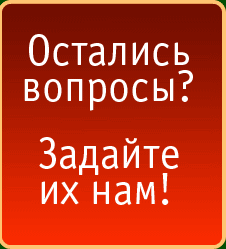Description: War Thunder is a next generation military MMO game dedicated to...


The section contains detailed information for the 2016 admissions campaign. Here you can also find out about the conditions for providing a hostel, the number of free places, as well as the minimum points that were required to score to receive it.
 In the "Admission 2017" section, using the service, you can find out about the most important dates associated with admission to a university.
In the "Admission 2017" section, using the service, you can find out about the most important dates associated with admission to a university.
Because of this, it is believed that it is important to reach and serve customers more effectively, since from the moment you have this information, the faster you get into the consumer choice process. It is believed that with this work it is also justified, since its opportunity will clarify the selection process, from there, to map out the marketing strategies most appropriate to this selection process.
This theoretical reference, based on administrative theories, deals with marketing history as well as consumer behavior, the main factors influencing buyer behavior, stages in the purchasing decision process, and educational marketing.
 . Now, you have the opportunity to communicate directly with the admission committees of universities and ask them questions that interest you. The answers will be posted not only on the site, but will also be sent to you personally to the mail that you indicated during registration. And, quite quickly.
. Now, you have the opportunity to communicate directly with the admission committees of universities and ask them questions that interest you. The answers will be posted not only on the site, but will also be sent to you personally to the mail that you indicated during registration. And, quite quickly.
 Olympics in detail a new version section indicating their levels, samples of tasks, criteria for determining winners and prize-winners.
Olympics in detail a new version section indicating their levels, samples of tasks, criteria for determining winners and prize-winners.
Over the decades, the way we communicate with customers has improved. Scholars have divided each remarkable period change into centuries. Las Casas explains how the way marketing changes with changes environment. At times, manufacturing has been more valuable than other functional areas due to lack of products on the market. In other cases, sales activity was more appreciated due to oversupply from the market, etc. The marketing process has gone through different stages. These were: the manufacturing era, the sales era, and the marketing era, as seen in Table 1 below.
In the section, a new service "Remind about an event" has been launched, with the help of which applicants can automatically receive reminders of the most important dates for them.
A new service has been launched - " Unified State Examination Calculator Vkontakte". Join our group! Install any calculator application on your personal page, then you will receive all updates to it before anyone else and automatically.
Table 1: Marketing eras. Las Casas explains that in the mid-20s the product was made efficiently, as good product would be enough to sell, nothing more necessary and a good product is enough for a company to sell well, be divided into two phases: product and production. The first one is the one where the focus is on the product, as mentioned. The second is the one in which the emphasis is on manufacturing processes. Many successful products come from research and development that do not reflect direct input from customers.
| News |
These are the questions many applicants are probably tormented by. Where is the best place to study? How to choose the right university and specialty? Whose opinion to listen to? Don't break your head. Look at the results of a survey conducted by the Internet portal Career.ru - one of the largest players in the labor market for young professionals. And you will understand a lot.
Finally, when demand for products and services is much greater than supply, a production orientation may be appropriate. Production-oriented business managers are focused on achieving high production efficiency, low costs and mass distribution. The production era was the time when the company was involved in the production of some specific products, perhaps because some of these products were available on the market. "If we can make it, we'll sell it," thought McCarthy at the beginning of this era.
About 5,000 students of Russian universities took part in the survey. Students, in fact, shared their experience and gave advice to those who have a “hot summer” with admission still ahead. Here are their recommendations.
1. Choose the profession that best suits your interests and abilities, do not rely on someone else's opinion.
Before the 1950s, the so-called sales era included a concentration of marketing efforts to sell affordable products. It is commonly used when the supply of goods and services exceeds demand. Their need to sell surplus products, which were produced as a result of higher productivity and therefore an increase in the number of companies, sales became the most important activity. The order was to sell the product even if the customer didn't need it.
The sales-oriented company was one that assumed that consumers would resist buying goods and services that they did not consider necessary. To subsidize salespeople, companies are starting to advertise their products in the expectation that consumers will open their doors to receive salespeople, especially home-based salespeople.
2. Don't listen to your parents, choose what you like.
3. If you are interested in a specialty, do it and do not be afraid of difficulties. If there is no interest in the profession, then studies will not work.
4. Listen to advice, but decide everything on your own.
5. Pass professional tests.
6. If you are not sure about the choice of your future specialty, wait, weigh all the chances and only then make an informed choice.
The sales era occurs when a company puts emphasis on selling due to increased competition. The problem was to decide where to put the company's efforts. Someone had to join research, purchasing, manufacturing, shipping and sales. As this situation has become more common, the sales era has been replaced by the marketing era.
According to Las Casas, the era of marketing was characterized by consumer orientation, that is, responding to their needs and desires. In this way, marketers can create loyalty and compete effectively with other professionals. During this period there were different phases. In segmentation, attempts were made to group people like that and make more objective and targeted proposals. Through competition, the technology was innovative and increased the speed and reliability of its services.
7. If there are no specific preferences, focus on the labor market.
8. Understanding what you really need will come a little later. Therefore, do not be afraid to make mistakes, try, develop!
9. Go to the goal and don't be afraid of obstacles! Believe in your dream - and everything will work out!
10. Don't listen to people who don't believe in you.
11. Try to learn as much as possible about future profession especially about job prospects.
In the face of the marketing age, organizations must meet the needs and desires of customers as a means of achieving their goals, such as profit. This was not a detailed marketing study, but it was the first written report to cite this tool as a powerful force that market-oriented managers should consider.
Therefore, in order to better understand the history of marketing in a sequence, the evolution and eras of commercialization were provoked so that the relationship of these concepts could be understood. The evolution of marketing is closely related to the concepts of need, desire and exchange.
12. Read more books in your chosen field, do well in school, and know your weaknesses.
14. Know that the word "management" is, in a sense, a tribute to the times and is not necessarily followed by quality training and deep knowledge.
15. Stop blindly going to lawyers and economists.
16. Pay attention to technical specialties.
According to Churchill and Peter, marketing also not only helps companies sell more, but also coordinates any exchange process. Thanks to its evolutions, marketing has gone through different approaches and in recent times develops not only in companies, but also in the academic sector. An important task for marketing managers is to determine which product is associated with the needs that prevail among different groups of customers, and then turn these needs into desires, focusing on the benefits of satisfying the needs and the products they sell.
17. Choose not a prestigious, but a sought-after profession.
18. Teach foreign languages.
19. Do not give bribes upon admission, you can enter without a bribe.
20. Choose a direction where it will be interesting to study, and not for the sake of a diploma.
21. Most importantly - do not be afraid! Teachers at universities are not animals, they are the same people.
22. When choosing a university, evaluate not only the prestige, but also the level of practical skills that can be obtained in the learning process.
Churchill and Peter conclude by explaining that the needs of consumers or organizational buyers are things that are necessary for their survival. Las Casas says that needs are states of physical or mental deprivation. In more developed countries, the number of needs is greater, and they have the opportunity to create new markets and products at different levels.
For Kotler, needs are basic human needs. To survive, people need food, air, water, clothing and shelter. They also have strong needs for rest, learning, and fun. These needs become desires when directed towards specific objects that can satisfy them.
23. Do not be afraid to enter prestigious universities. Everything can work out if you really want it, even without bribes.
24. Apply for a bachelor's degree from a strong university, and go to a master's program where you plan to work in the future.
25. Find out in detail about the faculty you are going to enter. And better - get to know the person who studies there (via the Internet, for example), so as not to be disappointed.
Desires include specific goods and services to meet needs and additional needs that go beyond survival. Las Casas explains that exchanges are characterized by offering a product with other benefits, and can be a different product, as happened in barter, or currency, or any other benefit unrelated to these two. A full explanation that exchange is the basis of marketing and therefore marketing and that at least five basic conditions are required for existence, such as the need for the participation of at least two parties, each party has something of value to the other, there is an opportunity to communicate and deliver so that each party can accept or reject the offer, and each party believes that it is in a position to deal with each other.
26. Pay less attention to the advertising of the institute in the media.
27. Study the labor market well, what specialties are in demand, pay attention to whether there is employment and internships (practice) at the university.
28. Better prepare for exams. Successfully passing the exam is a real chance to go where you want.
29. Do not think that having a higher education can make you a highly qualified specialist if you do not make every effort to educate yourself.
These concepts have great importance, because they make it clear that marketing is being used, in addition to selling, for several other situations where there are requirements. According to Las Casas, there are several types of marketing requirements, and they can be divided as negative demand, which analyzes the causes of dissatisfaction and from there, develops a marketing program consisting of a product redesign. Unresolved demand where there are ways to link the benefits of products to people's natural needs and interests.
Latent demand, when the marketing manager must assess the potential of the market and strive to serve it the best way. Decreasing demand occurs when a company realizes that its demand is declining and must respond to a recovery in its market. Irregular demand occurs when some companies have irregular requirements for their products, at certain times there is congestion and little demand for others. The task of marketing is to adjust and promote the best distribution of this demand.
30. Start working in your specialty from the 3rd or 4th year, even for a small fee. Then after graduation you will have good experience and will be able to claim a normal salary.
If you have graduated general education school and have chosen a profession for themselves, then we can say that the most important and difficult stage has already been passed. But after this, another no less difficult task arises - this is the choice of an educational institution in which you will learn the basics of your future work activity.
The full demand is when a company reaches this level and strives to maintain the situation in the future, for this if marketers will keep up with market trends and make the necessary adjustments. An over-demand situation is characterized when marketing is in this situation and its job is to meet demand for demand. To do this, you can develop tactics to discourage demand or increase supply when possible. And unwanted demand, when society or legislation condemns the consumption of certain products, the task of marketing is to reduce their consumption.
Let's try to answer the question that worries many parents and applicants who have not yet taken place - how to choose a university for admission: what you need to know, what levels of education are there, what forms of education and others no less important points and nuances. Let's explore each of options as carefully as possible so that parents and students can choose the best for themselves educational institution.
Demand is the desire for specific products supported by the possibility of purchasing them. Continuing the same thought about marketing, marketing concepts will help to base this work. Marketing is defined as the distribution and sale of goods, including the activities of all those involved in the transfer of goods from producer to consumer.
According to Las Casas, there are several technical definitions for marketing and even attempts to translate into Portuguese, such as marketing or merchandising, that is, marketing as well as implementation. The author changed the distribution of items at the point of sale by creating a mnemonic form. Today it is one of the concepts most used in marketing due to its simplicity and ability to practical application.
Before choosing a university, let's designate the levels of institutions that are used in our education system.
1. General. This includes the education that every student in our country receives:
2. Professional (technical). This is such an education that allows you to get all the necessary skills in order to become a professional in a particular field:
To expand the scope of understanding in this study, we are looking for the concept of other authors such as Kotler, who defines marketing as a social process through which people and groups of people get what they need and want with the creation and free negotiation of valuable products and services with others. Yet Reachers defines marketing simply as the intention to understand and serve the market. This means that in order to serve the consumer, the company must first understand this, that is, determine what he wants, and then strive to satisfy his desires.
3. Postgraduate. This education allows you to get a degree in graduate school, doctoral studies, residency and adjuncture.

If you have not finished school yet and you have some doubts whether to go or not to go to grade 11 and how this will affect your next study (how many universities you can choose, points, specialties), then you should read the list below.
Opportunities after ninth grade:
After the end of eleven classes, the following opportunities open:
Before choosing a university, it would not be superfluous to note that the vast majority of young people prefer to finish 11 classes and apply to higher educational institutions. This is the most optimal and most popular option for obtaining vocational education. Let's talk about this option in more detail.
Before choosing a university, you should know that until September 1, 2009, the Russian education system was one-level, that is, a student studies for five years at a university or institute and receives a standard (basic) diploma conferring him a certain specialty.

A little later, this system was modernized, and it was replaced by a three-stage training structure, somewhat similar to the Western one. Before choosing a university, consider it in more detail.
After graduating from an educational institution (4 years), the graduate receives a diploma on conferring a bachelor's degree. This is a kind of base higher education. Such a diploma allows you to prepare qualified employees in the socio-economic or industrial sphere, as well as provide special development in the amount necessary for work in general views activities in one direction or another.
If a student additionally stays to study for one year, then at the end he will receive a diploma of a specialist. That is, a person who is able to train workers with a narrow specialization and higher qualifications. This option is considered optimal for most students: it is enough to choose a university in their specialty and unlearn five years.
Additional training for two years after receiving a bachelor's degree. The graduate in this case becomes a master. This option involves a deeper and narrower specialization in one direction or another. The master's program prepares people who are able to solve the most complex problems in any kind of activity: professional, analytical, research, etc. It also provides an influx of scientific and pedagogical personnel to universities.

Each of these levels is considered independent, and in order to continue studying, it is necessary to pass exams. You can choose a university based on scores or based on the results of the unified state exam. In any case, after you receive a specialist or master's degree, you will have the opportunity to continue to receive education (postgraduate).
Along with the above structure, the usual system of obtaining a specialty, for example, in medical programs, remains.
So, you graduated from high school, and you are faced with the task of choosing a university based on the Unified State Examination or on points. To begin with, it does not hurt to decide for yourself which form suits you.

Today's universities offer the following:
Here the main selection criterion is your individual ability to learn independently. If you choose the full-time form, it requires the student to attend daily classes and take notes from teachers' lectures. While the external means the independent collection and systematization of the necessary educational material with a corresponding report on the acquired knowledge at the end of the semester.
Most often, correspondence and distance learning is chosen by students who are going to work in parallel with their studies. Labor activity and simultaneous training is certainly good, but third-party employment does not always help in mastering the profession. Therefore, here you need to be careful, sometimes it’s better to deny yourself extra income, but successfully finish the semester. Sometimes the employer makes concessions, offering part-time students additional holidays, shorter weeks and other benefits (naturally at their own expense).
According to their legal form, all universities can be conditionally divided into two large groups are municipal and non-state.

Which educational institution to choose depends only on you and on your financial capabilities. Municipal universities have the opportunity to apply for free education(budget), while in non-state institutions this is an extremely rare occurrence.
As for the quality of education, the diplomas of state institutions are valued much higher. Many factors play a key role here, and one of them is the raw curriculum in private universities. Nevertheless, the fact that non-governmental institutions study some industries more deeply (foreign languages, IT technologies, etc.) makes them very attractive to narrow specialists.
You need to clearly understand for yourself that the chances of entering a higher educational institution directly depend on your preparedness, so you should not rely on “maybe”, but carefully analyze your capabilities and weigh all the pros and cons.
And remember the main thing is that your future life will depend on your decision. Do not choose a university at random or because a friend advised you. Think about whether you are willing to spend four or more years mastering a profession that you will no longer enjoy in the second year of study.